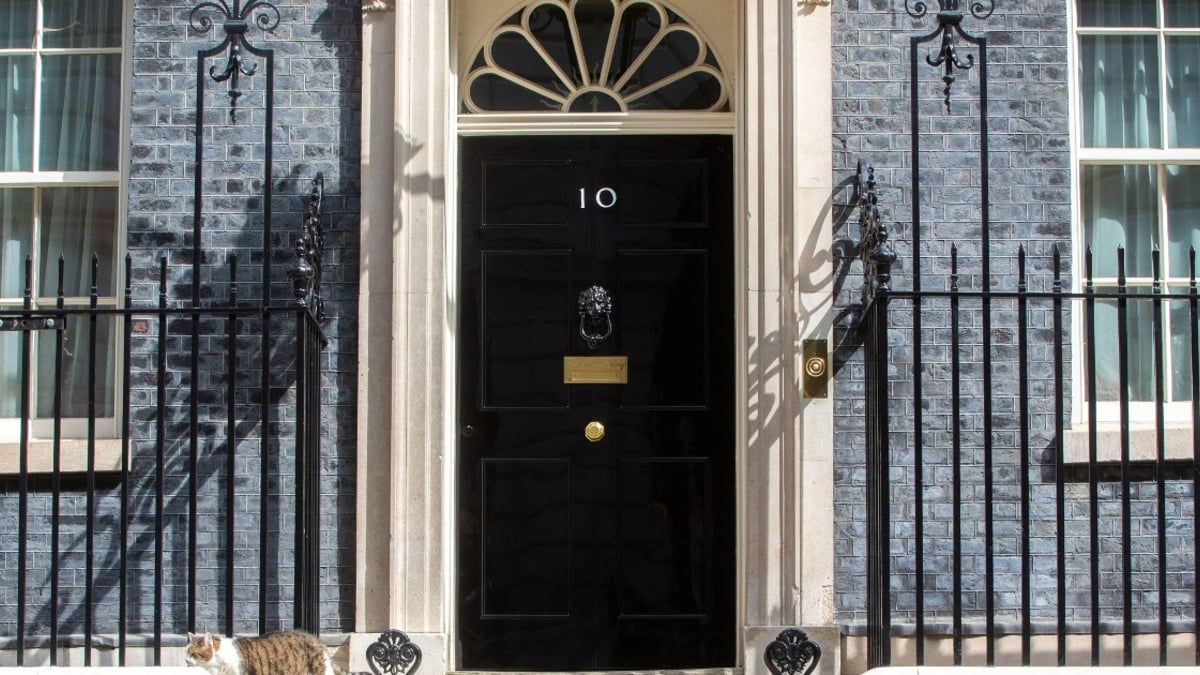Next UK Election Odds: What Price Are Labour, Conservatives And Reform For 2029?

UK betting sites believe Labour have slightly more than a 50/50 chance of winning the next election, despite holding a massive majority in the House of Commons.
Sir Keir Starmer delivered a stunning electoral victory in July and now has a 157-seat majority which he can use to effectively push through his legislative agenda.
However, the strangeness of the UK’s electoral system means there is a large underbelly of opposition against Labour, despite their command of the Commons.
* Win a VIP trip for 2 to the Las Vegas Grand Prix - return flights from London, five nights in the Linq Hotel and Casino PLUS $2,000 spending money! Enter our FREE competition below:
Reform UK hoovered up millions of votes in July yet delivered just five MPs to parliament. The Conservative Party may have wilted but they are expected to claw back many Reform voters between now and 2029.
This, coupled with a rocky opening few months for Labour in office, means politics betting sites aren’t willing to throw their full weight behind Starmer winning a second term in 2029.
Nor do they think Reform will challenge for the biggest share of seats in the Commons. All the focus is on the Tories and how their odds will shift over the coming months and years – and right now they’re priced exceptionally high compared to where they’re likely to be five years from now.
Here’s how the bookies view the 2029 election right now. As you can see, Labour are odds-on to secure a majority, but the Conservatives are creeping up on them already.
2029 UK General Election Odds
Party | Odds | Bookmaker |
Labour | 5/6 | |
Conservatives | 9/4 | |
Reform | 7/1 | |
Liberal Democrats | 66/1 | |
Greens | 500/1 |
Here, we look at the viable options for 2029:
Labour Majority
All betting apps have Labour as the favourites to win the next election but those odds are already in flux.
Starmer’s party were considered to have a 66% chance of winning in 2029 when bookmakers launched their odds in late summer.
However, Labour’s price with Betfred has now drifted to 5/6, which carries a 54.5% probability.
This is a worrying sign for Starmer and comes amid fresh polling that says his popularity is already falling.
Labour are setting an economic narrative that the UK must balance the books before it can turn on the spending taps, much like the Tories and Lib Dems did in 2010.
The autumn budget will lay bare exactly how Labour hope to claw back what they claim is a £20bn black hole left over from the Conservatives.
The problem is, many voters backed Labour on the basis that they would bring investment back into the economy – something that has been sorely lacking in recent years.
Starmer has to offer the public something positive this winter, otherwise Labour’s 2029 election odds will slide further.
It’s not that the Tories are in a great position to take power now, but Labour’s electoral chances five years from now may rest on their reputation today.
Conservative Majority
BetMGM were one of the first bookmakers to cut the Conservatives’ odds of winning the next election to 9/4, as it became clear they would target Reform voters with their new leader.
Tory members will choose either Kemi Badenoch or Robert Jenrick to lead the opposition. Both candidates are from the right of the party who are determined to claw back support from Nigel Farage's Reform.
The Conservatives will likely spend this parliament dallying again with right-wing rhetoric, while Labour hold the centre ground.
But as we near the election date it will be interesting to see if the Tory leader shifts focus in order to attract moderates.
That’s why the Conservatives are well priced with a 30.8% chance of winning the next election.
They could flip either way. If they shift too far right then they won’t beat Labour, even if Starmer endures a rocky premiership. Move to the centre and they’ll be in a far better position to topple the government.
It all depends on how the new leader deals with a surging Reform vote.
Reform UK
And then there is Reform itself. Farage is in control of this party and some believed he would try and strike a deal with the Tories to merge before the next election.
However, Reform are polling so well that Farage has grander aspirations now. Rather than couple with the Conservatives, he will push for a majority at the next election.
It could happen. An astonishing 14% of the UK voted for Reform in 2024 and that support may well grow to the detriment of the Tories.
There’s a very real possibility that Farage’s party becomes the main opposition after the next election, should the new Conservative leadership fail to prove up to the job.
William Hill has Reform at 7/1 to win the next election. To put that into context, bookmakers had Nottingham Forest at 11/1 to beat Liverpool in September. Forest won 1-0 at Anfield.
Reform’s odds will be interesting to watch over the coming months and years, especially as Labour grapple with perpetual bad headlines.
Liberal Democrats
The bookmakers give the Liberal Democrats a 2% of winning the next election. That’s probably being kind to them. This year was a standout election for the Lib Dems as they targeted Tory-backed seats across the south.
The tactic worked and Sir Ed Davey delivered 72 seats to Parliament. However, this is considered a high water mark.
Reform are growing and the Tories surely cannot perform any worse than they did in 2024. If the Conservatives do fail to grow their numbers in 2029 then that will probably be to the benefit of Reform, not the Lib Dems.
Greens
The Green party won four seats at the last election and have plenty of support across the country. However, the way the UK election system works means they’re never going to get near a majority.
While Reform have grown out of the fringes, the Greens still remain on the periphery.
Climate change and environmental issues certainly help throw the Greens into the spotlight. Yet voters seem generally more keen to weigh up their environmental concerns alongside economic and social issues.
That’s why many environmentally-conscious voters still backed Labour or the Lib Dems in 2024. It’s also why sceptics pushed towards Reform, who were promising to roll back green targets.
The Greens might earn more seats at the next election but pushing beyond 10 MPs would be a successful result.
How The UK Election Works
UK general elections require voters to elect a constituency Member of Parliament from their area.
There are 650 constituencies in the UK that make up the House of Commons, which is the lower chamber in the country’s parliament.
A party therefore needs 326 MPs to form a majority. If no party has a mandate to form a majority then they can work together to form coalition governments – as happened in 2010 with the Conservatives and Liberal Democrats – or try to govern as a minority.
Voters back a constituency candidate who is affiliated with a party, or they can vote for independents.
UK elections work on a first-past-the-post system. That means the winner doesn’t need 50% + 1 in order to win. They simply need more votes than any other candidate.
FPTP benefits the bigger parties because more people generally vote for their candidates, even though they might not win outright in their constituencies. A winning candidate may only earn a third of all votes cast, yet still represent that constituency for the next parliament.
Pollsters will track the voting throughout election night and then release their exit polls at 10pm.
Each constituency then begins their count through the night, and a winner is usually announced in the morning.
Frequently Asked Questions
When is the next UK election?
The next UK election is scheduled for 2029. However, the next UK election could be earlier if like we saw in 2017, the prime minister calls a snap election. That's what Theresa May did two years after the 2015 election.
How often is there a UK election?
UK general elections cannot be held more than five years apart because a single ‘parliament’ has a maximum five-year lifespan. However, a snap election can be held so long as it has the backing of two-thirds of MPs. Prime ministers often call elections in the final year of a parliament, usually in the spring or summer months.
Is there an election if the Prime Minister resigns?
There is no obligation for Parliament to call a new UK election if the Prime Minister resigns their office. This is because the country votes for a party to govern, rather than an individual. This was the case in 2022 when first Boris Johnson and then Liz Truss resigned as prime minister.
Who will win the 2029 UK election?
It's difficult to say at this stage who will win the 2029 general election. It all depends on what Labour do in charge of the country. If they do well, then they will be favourites to stay in power. If they fail to deliver on their manifesto, then the Conservatives could return to power.
What are the latest UK politics odds?
Labour are 5/6 to win the 2029 election with a majority. The Conservatives are 9/4 to form a majority government.
Stay In The Loop With Free Bets, Insider Tips & More!
Live Betting. Sports Promos. Sent Weekly.

















